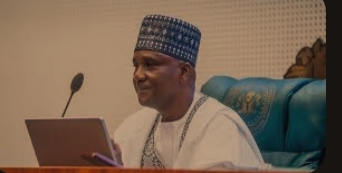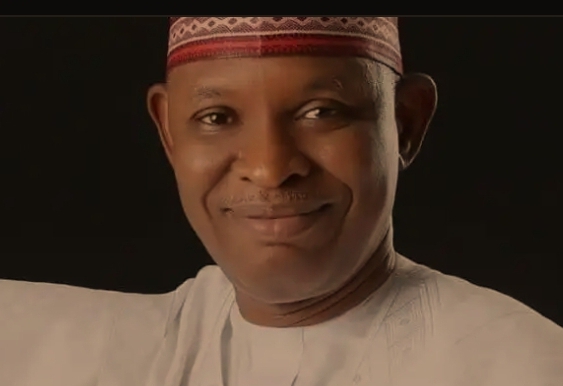By Tambaya Julius, Abuja
In the pursuit of equitable economic practices, the Speaker of the House of Representatives, Rt. Hon. Tajudeen Abbas, has vowed to champion a vital change.
This transformation aims to ensure Nigerians receive a substantial minimum wage that genuinely sustains them.
The commitment was articulated during a noteworthy event in Abuja, the National Policy Dialogue on Corruption, Social Norms, and Behavioral Shifts in Nigeria.
Addressing the gathering on behalf of Speaker Abbas, Hon. Busayo Oluwole-Oke, representing Obokun/Oriade Federal Constituency, articulated the Speaker’s earnest dedication to this noble cause.
It’s evident that a fair minimum wage holds the potential to alter the course of societal norms and reduce the inclination towards corruption.
The Speaker’s vow resonated within the corridors of power, highlighting the urgency of the ongoing review of the country’s minimum wage structure.
Abbas delved into the core of the issue, identifying a significant link between a survival wage and the prevalence of corruption.
A populace struggling to make ends meet is susceptible to engaging in corrupt practices.
He affirmed that the House of Representatives is committed to ensuring Nigerians receive a minimum wage that can truly sustain them, thereby reducing the temptation towards illicit activities.
Drawing insights from societies with minimal corruption rates, Abbas emphasized the importance of social safety nets in shielding citizens from dire economic circumstances.
The model suggested that Nigeria, with its inherent capabilities, can embrace similar measures.
He acknowledged the societal pressures faced by legislators, stemming from the high poverty rates in the country.
These pressures underscore the need for holistic change to uplift citizens and steer them away from corruption.
While advocating a shift in societal norms is pivotal, Abbas affirmed the need to address the factors that give rise to undesirable behaviors.
He proposed behavior change interventions, encompassing diverse strategies like awareness campaigns, educational initiatives, and legal reforms.
By fostering ethical behavior and challenging existing norms, a more resilient anti-corruption environment can be established.
Abbas emphasized the indispensable role of governmental policies in combating corruption through behavior change.
He stressed the need for policies that advocate for living wages and bridge the gaps created by governance failures.
The vision of curbing corruption necessitates a comprehensive and multi-faceted approach, integrating social norms, awareness campaigns, strong institutions, ethical leadership, and effective legal measures.
Senator Godswill Akpabio, the President of the Senate, echoed the complexity of the corruption challenge.
He highlighted transparency, accountability, and strengthening legal frameworks as critical components of the fight against corruption.
Akpabio underlined the importance of comprehensive anti-corruption laws enforced by institutions like the ICPC.
Furthermore, he emphasized fostering a culture of ethics and integrity through education, media engagement, and the involvement of civil society organizations.
To win the war on corruption, Akpabio stressed the significance of promoting responsible business practices, enhancing financial transparency, and ensuring strict enforcement of anti-corruption protocols in both public and private sectors.
The path to a corruption-free society demands a concerted effort from all quarters government, institutions, civil society, and the media.
The collective pledge to improve minimum wage is a pivotal step towards curbing corruption in Nigeria said Akpabio.
Through a symbiotic blend of policy changes, ethical shifts, and comprehensive legal frameworks, the nation can pave the way for a brighter, more transparent future.










